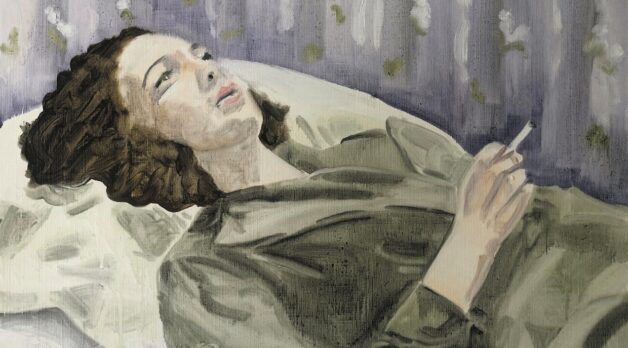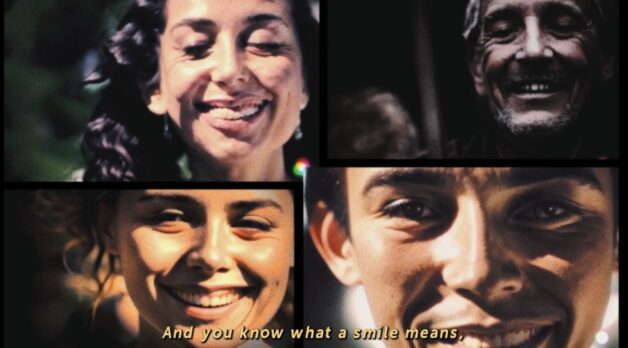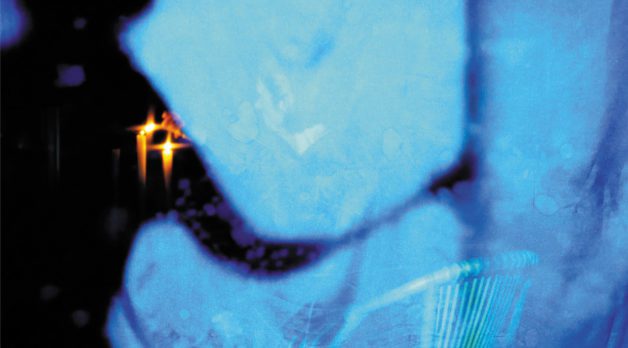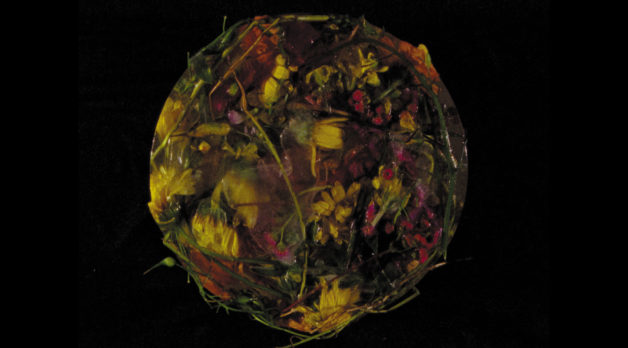Extra Curricular
by Holly Willis
-
 Loving Cinema, Frame by Frame: The Art of Cathy Lomax
Loving Cinema, Frame by Frame: The Art of Cathy Lomax
Every now and then—winter break, summer break—I purchase a new notebook at the local Blick intending to take up drawing, a practice far from my discipline of cinema studies. This notebook need is not driven by my usual academic hubris, which asks smugly, often with a shrug, “Really, how hard could it be?” but by something more feral and fervent. Like, if I could put pen or pastel to paper, something pure would pour forth, heart to hand to drawing. There would be color and expression and the ineffable, all in a scribble. And if you think I’m exaggerating: There… Read more
-
 Lessons from the AI Filmmaking Rabbit Hole: Holly Willis on Teaching During Rapid Technological Change
Lessons from the AI Filmmaking Rabbit Hole: Holly Willis on Teaching During Rapid Technological Change
I recently found myself sitting between three tech bros on my right and three cinephiles on my left. The film festival panel was meant to be a discussion about AI in the film industry; instead, it was an exasperating—if entertaining—demonstration of the radical gap in knowledge separating people who have some technical understanding of AI and those who don’t. There were tone-deaf proclamations about “generating content” and “optimizing workflows” on one side. And there was shouting, swearing, table-pounding, finger-pointing and (almost) tears on the other side, culminating in the announcement, “We’re very afraid!” I get it. AI has been foisted on… Read more
-
Crash Course: A Professor Quickly Learns about AI
Earlier this year, as ChatGPT, Midjourney, Runway and a long list of other AI tools ignited a national conversation about artificial intelligence, many of my colleagues in the School of Cinematic Arts at the University of Southern California shuddered in horror over the displacement of human craft and creativity by visuals created through simple text prompts. Published in The New York Times in February, columnist Kevin Roose’s description of his creepy conversation with Bing added gasoline to the fire, prompting a desire to prohibit the use of all AI across all of our programs. And what about plagiarism?! The general… Read more
-
Paradigm Shifts: TV-Focused Curriculum Changes at Three Film Schools
A couple of years ago, I was chatting with writer Jack Epps, a colleague of mine at the School of Cinematic Arts at the University of Southern California. We were marveling over the rise of the limited series as a format, and he explained that it allows for an expanded second act. “You can really develop the relationship between a protagonist and antagonist,” he said, using Killing Eve as a great example. I was intrigued by the idea that new formats could allow different aspects of storytelling to emerge so, for this issue’s column, I asked the heads of three… Read more
-
 Daydreaming, Neuroscience and Screenwriting: The Imaginative Teaching of Mary Sweeney
Daydreaming, Neuroscience and Screenwriting: The Imaginative Teaching of Mary Sweeney
“I have always had a hard time explaining my creative process to people,” says Mary Sweeney, a professor of screenwriting in the John Wells Division of Writing for Screen & Television at the School of Cinematic Arts at the University of Southern California. Sweeney boasts a long list of filmmaking credits but may be best known for her collaborations as a producer, writer and editor with filmmaker David Lynch. In particular, Sweeney edited Lost Highway and Mulholland Drive, two deliriously dreamy films that highlight a form of poetic cinema and a creative process that Sweeney hopes to share with students.… Read more
-
Still Looking: Gail Segal and Sheril Antonio’s Dramatic Effects with a Movie Camera
In their new book, Dramatic Effects with a Movie Camera, Gail Segal, a poet, filmmaker and associate arts professor, and Sheril Antonio, an associate arts professor in the department of art and public policy, both at New York University’s Tisch School of the Arts, describe a form of shot-by-shot film analysis that can teach filmmakers the nuances of cinematic storytelling. Recently published by Bloomsbury Publishing, the richly illustrated book is based on an NYU graduate filmmaking course taught more than two decades ago by Segal. “This class was an investigation of film technique,” Segal explains, “with the goal of applying… Read more
-
 Simple Machines: The Inspiring Teaching of Experimental Animator Jodie Mack
Simple Machines: The Inspiring Teaching of Experimental Animator Jodie Mack
“Find the note, and then deviate,” urges experimental animator Jodie Mack. The colorfully clad artist is a third of the way through her antic presentation to the November 2021 Film Friends gathering hosted by the Echo Park Film Center. Now in its second year, the monthly online series this go-around is focused on “simple machines” for filmmaking. Mack has been cheerfully showing some of her own creations, like a bicycle-driven zoetrope, but speedily moves on to her love for singing. “My voice is a simple machine!” she rhapsodizes before breaking into a wide-mouthed croon, one or two notes above the… Read more
-
Pedagogical City Hopping: the DocNomads Film School
“What if we create a curriculum for a school we’d like to attend ourselves?” That question was the foundation for a group of five educators who gathered in Lisbon, Portugal, in 2011 to brainstorm an entirely new two-year Masters-level film program dedicated to documentary production. The partners came from Lusófona University in Lisbon; the University of Theatre and Film Arts in Budapest, Hungary; and LUCA School of Arts/College Sint Lukas in Brussels, Belgium. Vítor Candeias, who represented Lusófona University in designing the program and is a course director as well as a documentary filmmaker, says that the original idea was… Read more
-
Environmental Storytelling
In August 2021, the United Nations’ Intergovernmental Panel on Climate Change issued a new report on the global state of the environment, highlighting the shrinkage of glaciers, warming of oceans, massive forest loss, extreme heat, devastating drought and more. While the report is crushing, it is also fuel for action. Indeed, the BBC’s climate editor, Justin Rowlatt, suggested that 2021 could be the year for finally making climate change a top priority, citing the upcoming UN Climate Change Conference in Glasgow in early November as just one landmark event that could help consolidate action. For filmmakers teaching in universities, the… Read more
-
Talking about Film
While filmmakers attend festivals to show their work, network and see old friends, film scholars have their own, similar venues; namely, academic conferences. Instead of submitting films, scholars submit proposals to present papers or host workshops; these are either accepted or rejected. Scholars whose proposals are selected not only have more impetus to attend the conference, they also will be able to add the presentation to their CV and activities list for the year. More significantly, though, these presentations often serve as early drafts of book chapters or essays to be published later. As a result, conferences play a vital… Read more




